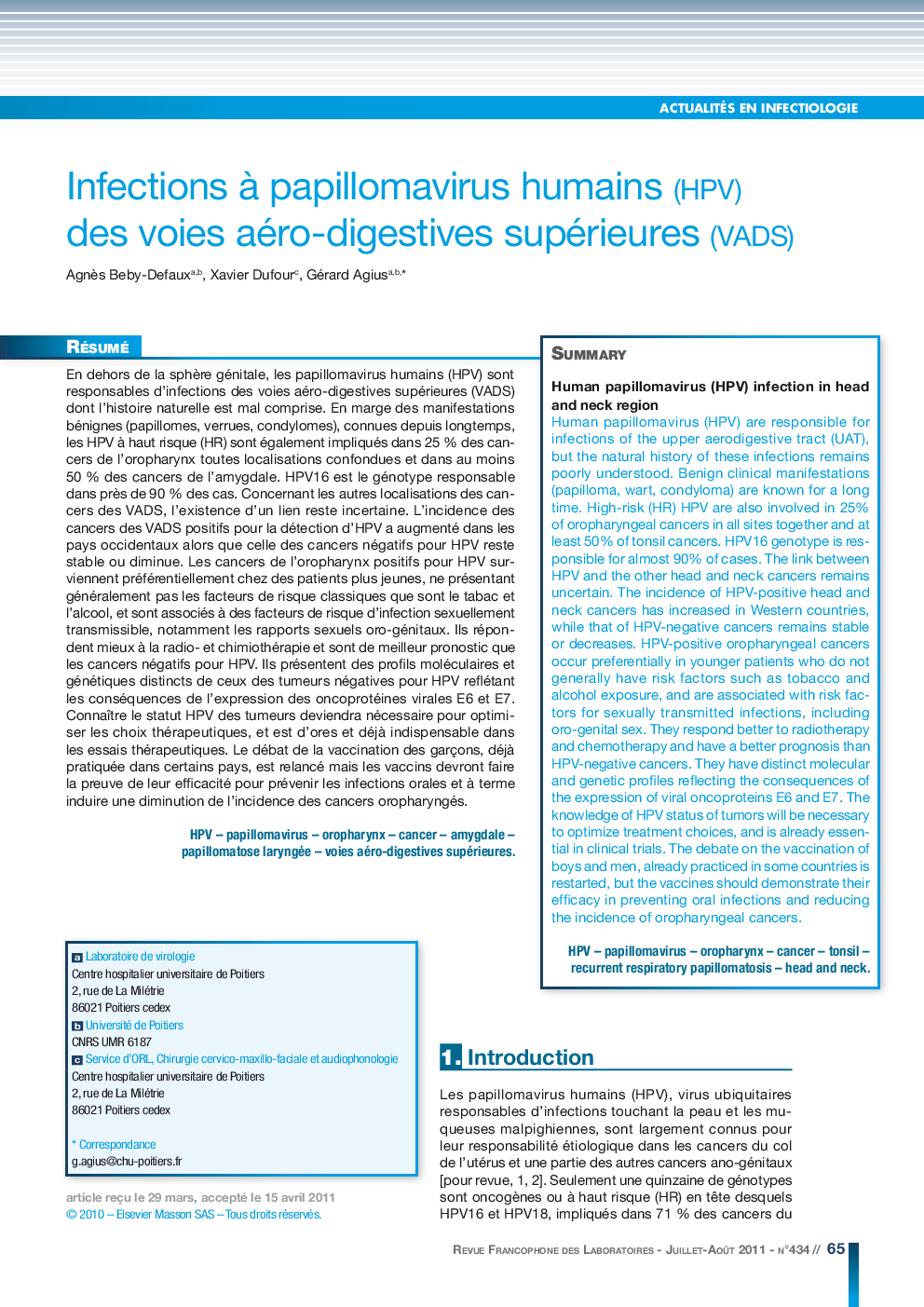| Article ID | Journal | Published Year | Pages | File Type |
|---|---|---|---|---|
| 7656042 | Revue Francophone des Laboratoires | 2011 | 11 Pages |
Abstract
Human papillomavirus (HPV) are responsible for infections of the upper aerodigestive tract (UAT), but the natural history of these infections remains poorly understood. Benign clinical manifestations (papilloma, wart, condyloma) are known for a long time. High-risk (HR) HPV are also involved in 25% of oropharyngeal cancers in all sites together and at least 50% of tonsil cancers. HPV16 genotype is responsible for almost 90% of cases. The link between HPV and the other head and neck cancers remains uncertain. The incidence of HPV-positive head and neck cancers has increased in Western countries, while that of HPV-negative cancers remains stable or decreases. HPV-positive oropharyngeal cancers occur preferentially in younger patients who do not generally have risk factors such as tobacco and alcohol exposure, and are associated with risk factors for sexually transmitted infections, including oro-genital sex. They respond better to radiotherapy and chemotherapy and have a better prognosis than HPV-negative cancers. They have distinct molecular and genetic profiles reflecting the consequences of the expression of viral oncoproteins E6 and E7. The knowledge of HPV status of tumors will be necessary to optimize treatment choices, and is already essential in clinical trials. The debate on the vaccination of boys and men, already practiced in some countries is restarted, but the vaccines should demonstrate their efficacy in preventing oral infections and reducing the incidence of oropharyngeal cancers.
Keywords
Related Topics
Physical Sciences and Engineering
Chemistry
Analytical Chemistry
Authors
Agnès Beby-Defaux, Xavier Dufour, Gérard Agius,
